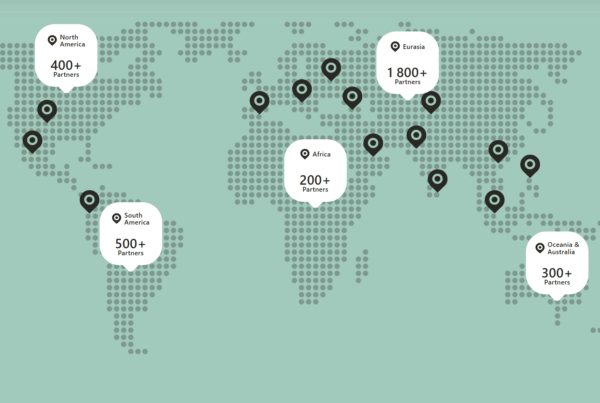Overview:
- Security, data confidentiality and compliance are becoming real challenges with messaging at work.
- 56% of workers are using smartphones at work globally
- 50% of employees are using messaging applications to share information at work – overtaking email usage at 47%, and SMS at 36%
A recent MEF study examining messaging in the workplace found that messaging apps were taking over as the main form of communication for work on mobile, ahead of traditional email, and that the privacy and security risks that went with such a trend were a cause for concern among employers. Here, MEF CEO Dario Betti shares key takeaways from a webinar discussing the findings of the study.
The workplace is changing, even before the impact of COVID-19 the trends of mobility and messaging are reshaping the communications in enterprises. I was joined by expert guest speakers and authors of the Messaging at work Study, Barbara Langer, co-founder at Insight Angels and Harsh Mamgain, VP of Products at Infinite Convergence to discuss the findings.
The report showed that 56% of workers are using smartphones at work, strikingly 50% of employees are using messaging applications to share information at work – overtaking email usage at 47%.
SMS is in third place at 36%. Harsh Mamgain confirms; “Between messaging apps and SMS you can see the dominance of mobile messages in the workplace. Email has its own place, but it is asynchronous, messaging brings the immediacy to a conversation – it takes away the formality of email conversations”.
Barbara Langer shared that the workers using mobile are worryingly even more likely to have experienced data harm in their mobile.
Barbara thinks there is a clear risk to highlight: “There is a worrying 7% of users that do not care about data security, and 57% of employees that do not feel that their data is secure. There is a clear need for enterprises to regain control of their data and educate their employers on some of these issues.”
Unfortunately, the examples of data breaches are many. Using a consumer messaging app brings new challenges to an IT department: how do you manage when employees leave the company but are still left with access to messaging chat groups?
Harsh confirmed that “It is a very scary scenario for most enterprises, especially in finance and health verticals. No enterprise should be allowing their employees to rely on their employees to defend company data. We had a group of global partners exchanging a lot of intelligence on WhatsApp but realising that HR had no way to provision automatically a bar to the company group when employees were leaving. Often these company do not know the extent of the damage that is created until they face the fact that an employee has moved to a competitor and accessed sensitive information”.
Register Now for an exclusive briefing on the findings of MEF’s 6th Annual Consumer Trust Study – April 8th
The Authors of MEF’s annual consumer study discuss the report’s findings and provide insights into consumer’s views on smartphones and digital services pertaining to trust, privacy and personal information.






